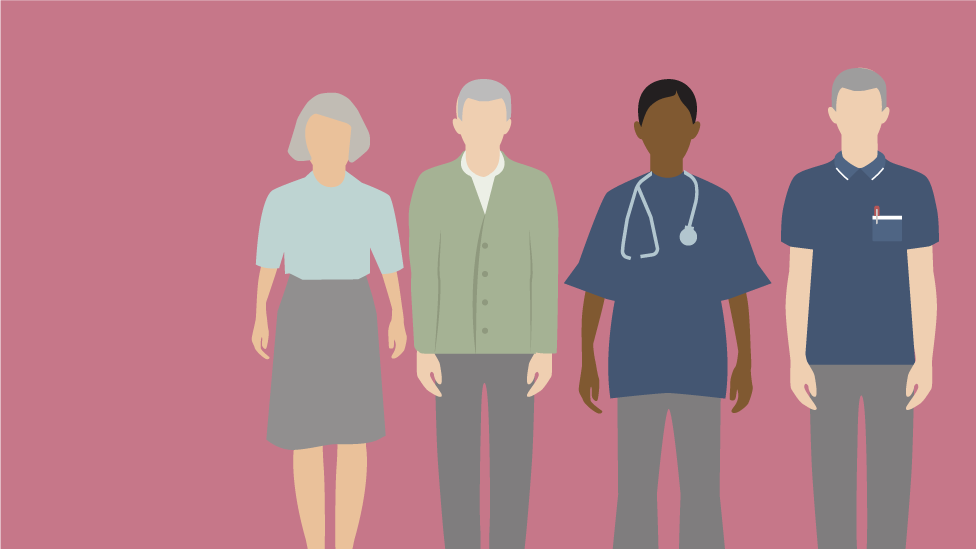Will the Budget help ailing grandparents?
- Published
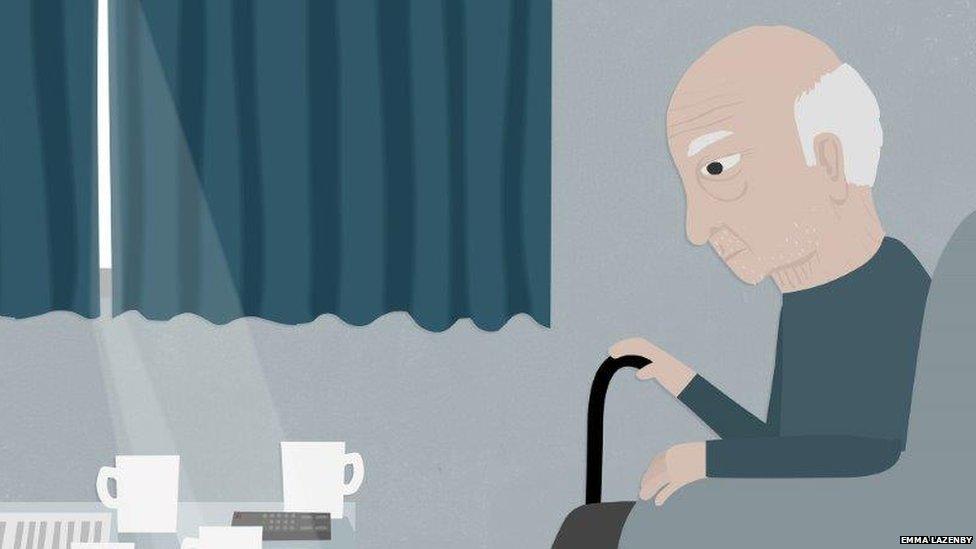
The chancellor has announced a £2bn rescue package for the social care sector in England.
Philip Hammond says the extra money - to be phased in over three years - will help support a system that is "clearly under pressure".
It comes after months of warnings that services provided by councils for the elderly are under threat because of a lack of funding.
The numbers getting help in care homes and in their own homes for daily tasks such as washing and dressing have been falling in recent years.
This trend has been blamed for contributing to the growing pressures being seen in the NHS, particularly the rise in visits to A&E.

Will it plug the funding shortfall?
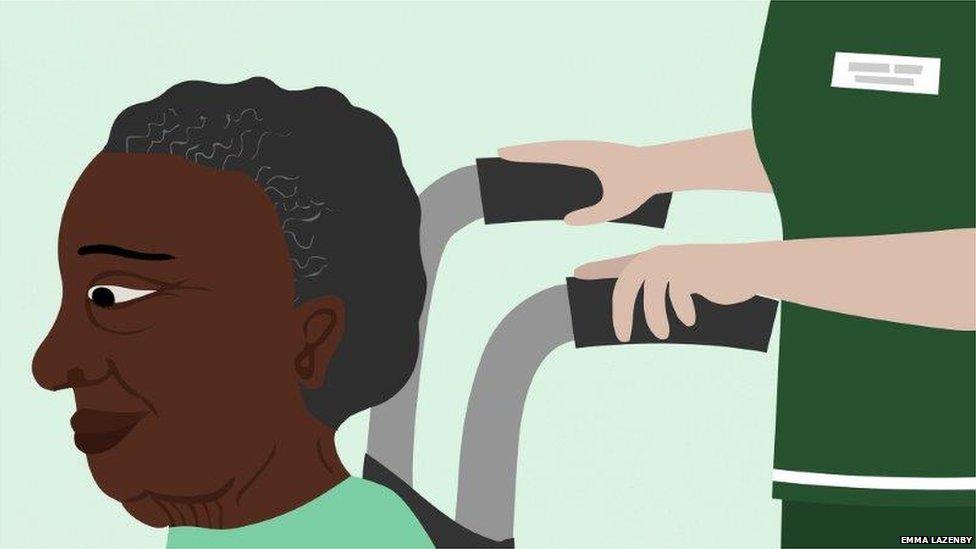
Social care chiefs have said they will need to spend nearly £20bn on services this year.
But even when you take into account the extra money being raised from council tax increases and NHS money that is being transferred across, (both previous policy announcements to help out the sector) councils are still nearly £1bn short of what they need.
By 2020 that funding gap is predicted to grow to £2.6bn.
The money announced in the Budget will go some way to plugging that gap, but clearly not all the way.
It is expected to be phased in - with £1bn coming next year and the remaining £1bn spread out over the subsequent two.
This will go into a pot shared across both services for the elderly, and those provided to younger adults with disabilities.
Charities have called it a "sticking plaster" to the wider problems facing the sector.
Although, to be fair to the chancellor, he said the extra money would be followed by a green paper later in the year to overhaul the entire system, which has remained largely unchanged since it was created along with the NHS, after the Second World War.

The rescue package doesn't help those who pay for care
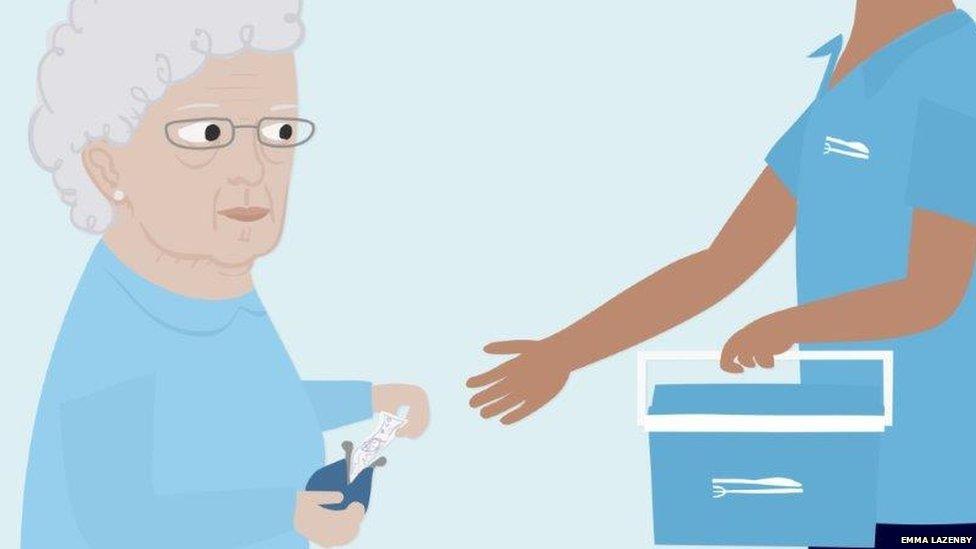
About 500,000 people in England pay the full cost of their care in England. This can prove very expensive.
One in 10 people face costs of over £100,000 once they pass the age of 65.
And there is growing evidence these self-funders are helping to prop up the council-funded side of the market.
Analysts LaingBuisson have calculated that the fees councils pay care home firms are £100 a week below the actual cost of providing the care.
Its researchers say this shortfall has effectively created a "hidden care tax" with self-funders now paying more than 25% extra for the same care.
To limit these costs the coalition government announced in 2013 it would be introducing a cap on the cost of care so no-one paid more than £72,000 over their lifetime.
This was meant to be introduced in 2016, but that was delayed until 2020. The green paper that was announced in the Budget will set out how - indeed if - that policy will be incorporated into any future changes.
But the extra money will do nothing to help these people.

And what about those who get no formal care?
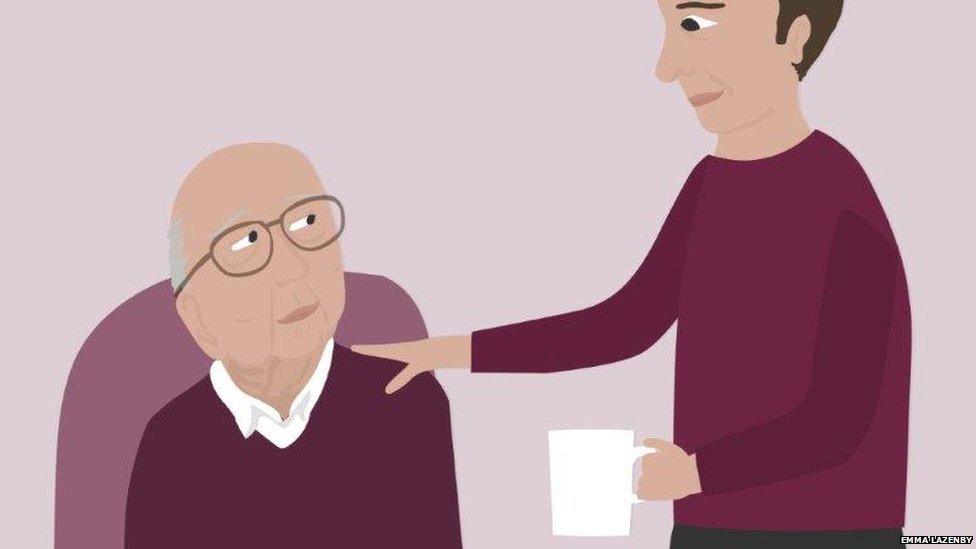
More than 4m people over the age of 65 have care needs, but only about 1.35m of them get formal care - either by paying for it themselves or relying on council help.
What happens to the rest? There are 1.5m people who are cared for by family and friends and another 1.2m who struggle by with little or no help.
In theory councils could use the extra money to increase the number of people they help.
But given there's already a shortfall in funding to maintain the status quo, it seems doubtful this will happen. Again, the promise of longer-term reform remains their best hope.
They may also benefit from extra support announced in the Budget for the NHS.
There is £100m extra to help A&Es ahead of next winter and £325m over the next three years to help with NHS reform by getting local plans off the ground to shift care out of hospitals and into community services.
Eventually this should help boost services such as GPs and district nursing, which the frail elderly are heavy users of. However, given the health budget is currently nearly £120bn a year, the impact of this extra money will be limited.
- Published8 February 2017
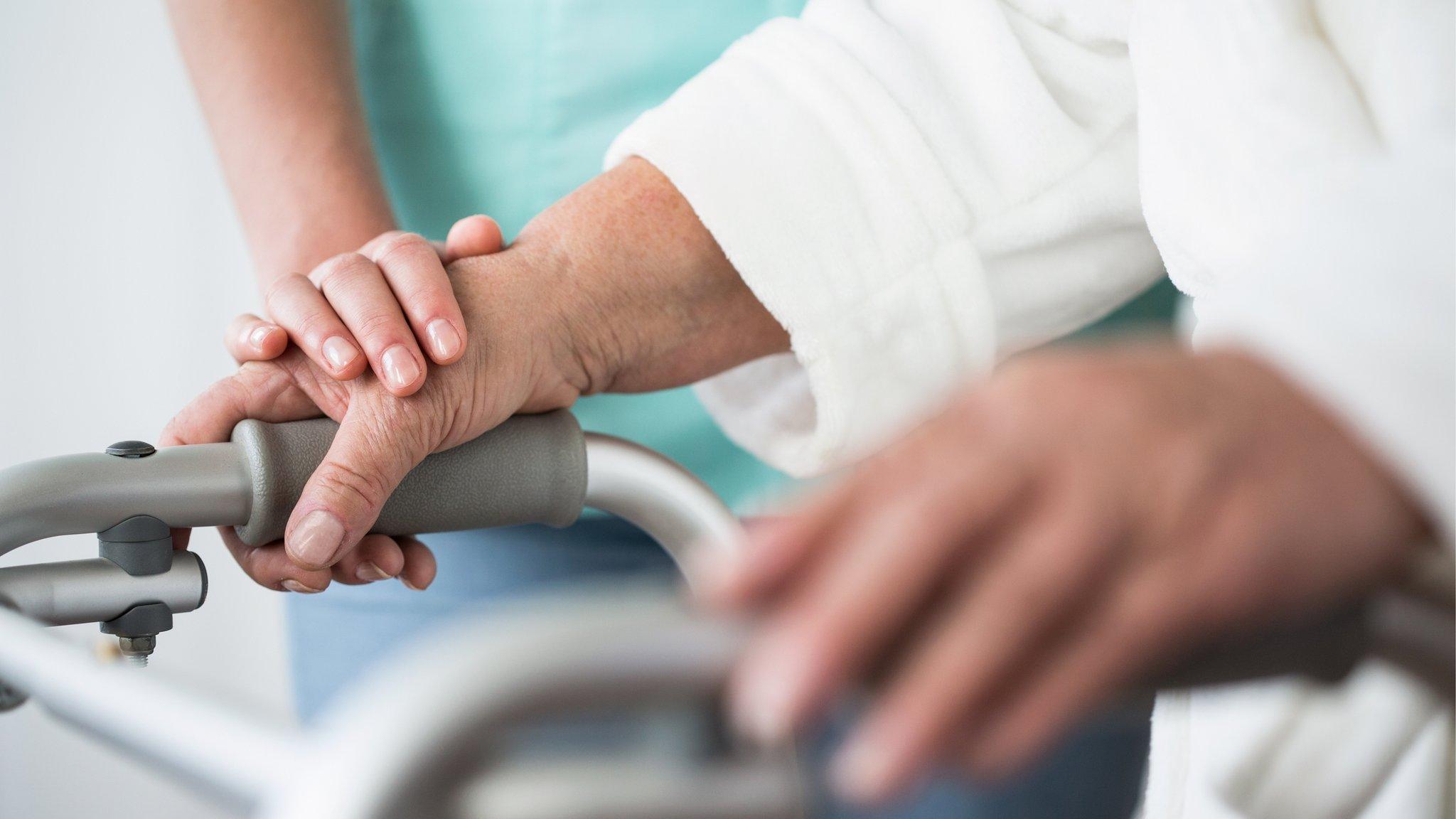
- Published8 February 2017

- Published6 January 2017
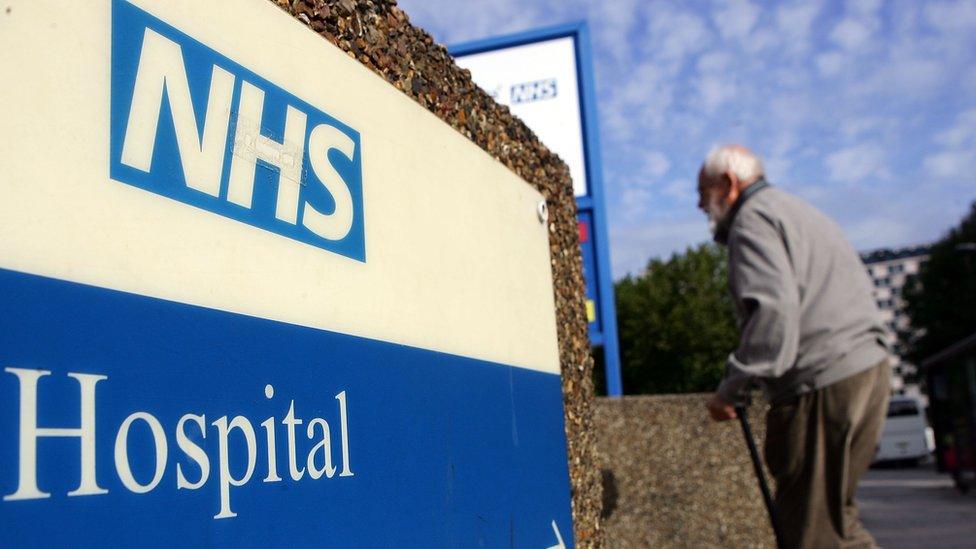
- Published12 December 2016
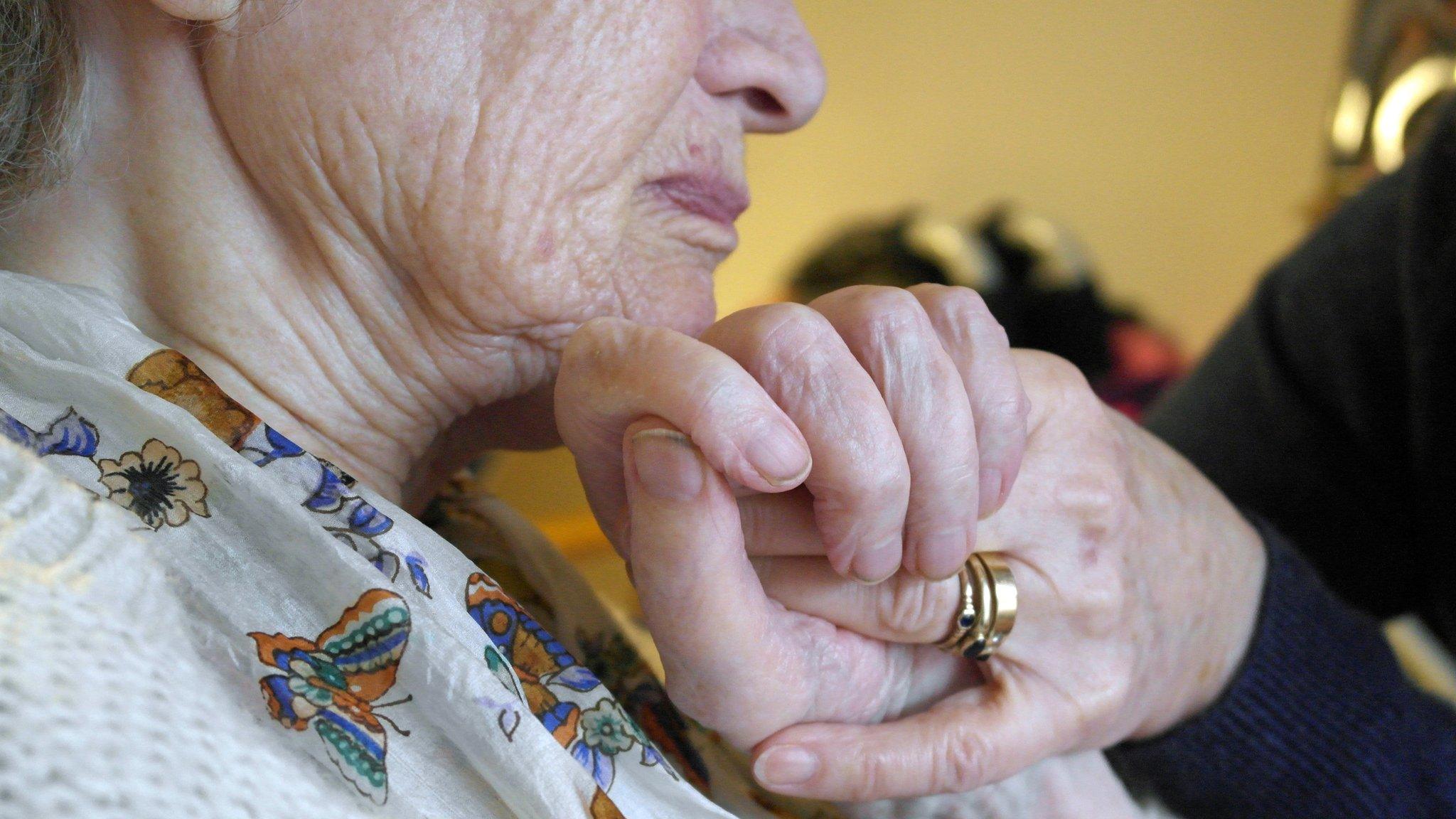
- Published13 September 2016
